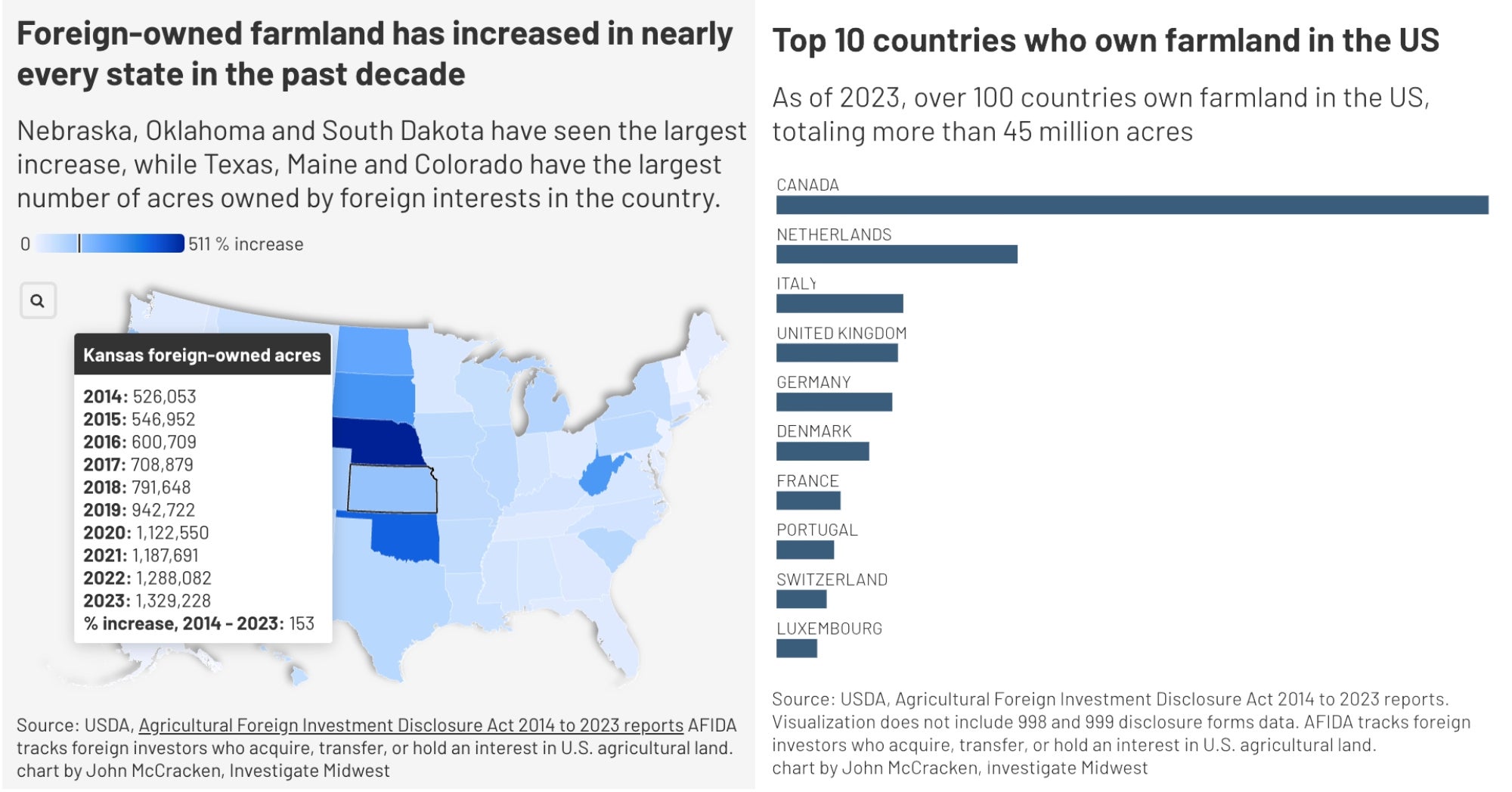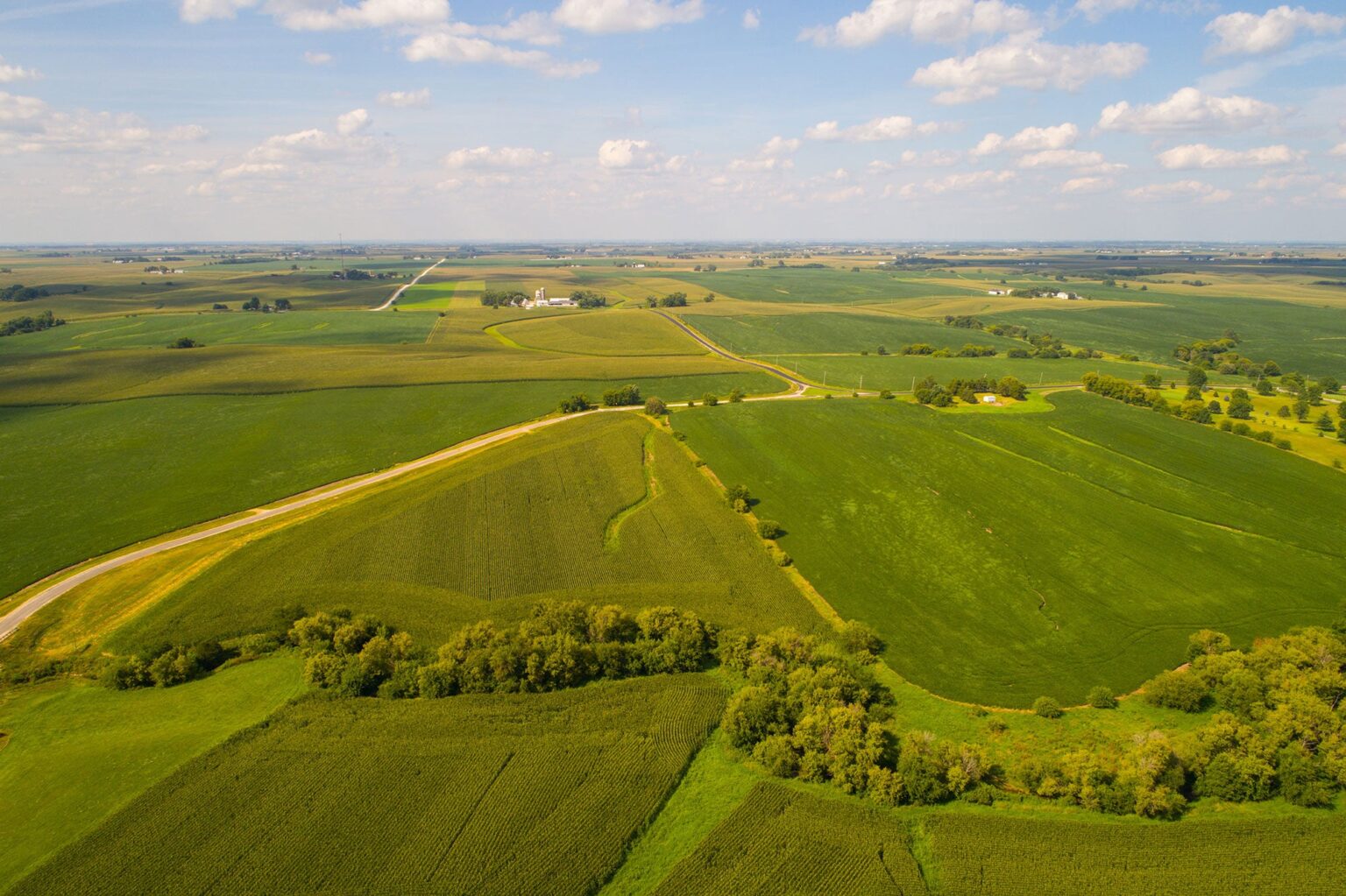Nearly every state in the country has seen an increase in foreign interests owning farmland since 2014, according to U.S. Department of Agriculture data.
Foreign countries and interests own more than 45 million acres of farmland in the country, which accounts for just over 3 percent of the nation’s private farmland, but the number of agricultural acres owned by foreign interests increased by 67 percent from 2014 to 2023.
The USDA tracks foreign investors “who acquire, transfer, or hold an interest in” U.S. agricultural land.
While Texas, Colorado and Maine have the largest amount of foreign-owned agricultural land in the U.S., other states have seen dramatic increases in the past 10 years.
Foreign-owned farmland in Nebraska increased five times since 2014 — from more than 153,000 acres to 936,000 in 2023. In Oklahoma, foreign-owned ag land has nearly quadrupled in the same time — increasing from more than 371,000 to 1.8 million over that same time period.
Half of the states have imposed laws that ban foreign ownership, but approaches vary by state. Congress has proposed specific bans on companies with ties to China, North Korea, Russia, and Iran.

North Korea owns no U.S. farmland while Iranian and Russian interests hold roughly 3,000 acres as of 2023, the majority of which is owned by Iran, according to USDA data.
China only owns a sliver of land in the U.S., according to USDA data. China owns less than 1 percent compared to Canada, which owns one-third of farmland in the country.
Chinese-owned companies held more than 277,000 acres of U.S. farmland in 2023, with the bulk controlled by Syngenta Seeds, Smithfield Foods — a pork processor — and a private solar panel firm.
Speaking earlier this year at the Ag Leaders dinner in Iowa, an annual gathering of agricultural industry, state commissioners and federal officials, USDA Secretary Brooke Rollins said her agency and President Donald Trump are targeting Chinese-owned farmland bans, calling it a threat to national security and economic prosperity.
This article first appeared on Investigate Midwest and is republished here under a Creative Commons Attribution-NoDerivatives 4.0 International License.


